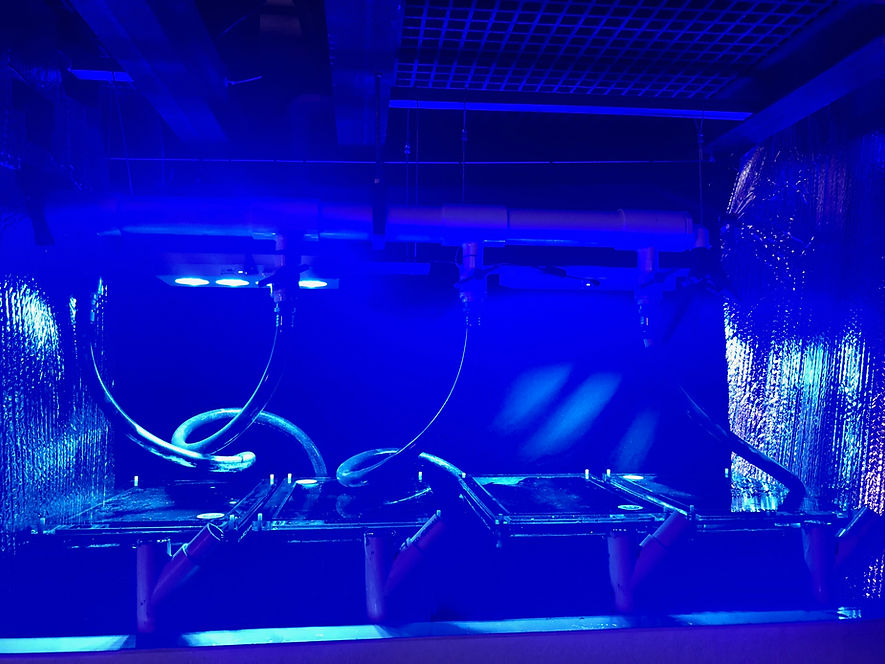
The Gulf of Maine is warming faster than 99% of the world's oceans.

Eunice Foote was the first person to identify carbon dioxide as a greenhouse gas, and hypothesized that changes in carbon dioxide in the atmosphere would affect the Earth’s temperature.* Her paper “Circumstances Affecting the Heat of Sun’s Rays,” was presented at the 8th annual meeting of the American Association for the Advancement of Science.
*Foote was a signatory to the 1848 Seneca Falls Convention Declaration of Sentiments, of the Women’s Rights Convention.
1856


Drawing by Carlyn Iverson, NOAA Climate.gov.

1896

Svante Arrhenius calculated that doubling the amount of atmospheric carbon dioxide would increase surface temperatures 5–6 degrees Celsius.
akg / Science Photo Library


1938

First peer-reviewed published scientific paper documenting climate change.
Guy Callendar and his 1938 paper in Quarterly Journal of the Royal Meteorological Society

1962


Rachel Carson published Silent Spring. Considered by many the book that created the modern environmental movement, it has been attributed to the passage of the first major U.S. environmental laws in the early 1970s.
1965

Publication of “Restoring the Quality of our Environment”, a Report of The Environmental Pollution Panel, President’s Science Advisory Committee, The White House. Appendix Y4 in particular evaluated atmospheric carbon dioxide and its impact on climate.
1970


Environmental Protection Agency founded.


1972

Institute for Quaternary Studies founded by Hal Borns at the University of Maine, now known as the Climate Change Institute. It was the nation’s first multidisciplinary research institute created to study Earth’s long-term climate variability.
Photo: Harold W. Borns, Jr., on the Tufts University Antarctic Expedition, 1960-61, P12772.

1973

Discovery by Mario Malina, in the lab of F. Sherwood Rowland, that chlorofluorocarbons (CFCs) could destroy ozone. (Both were awarded the Nobel Prize in Chemistry in 1995 for this work.)
Photo: Mario Molina, left, and F. Sherwood Rowland at the University of California, Irvine, January 1975. University of California, Irvine

1974

Bigelow Laboratory for Ocean Sciences founded by Charles and Clarice Yentsch. Bigelow researchers study the whole of the ocean, from microbes to large-scale biogeochemical processes that make up the ocean systems.

1987


Montreal Protocol, an international treaty that regulates the production and consumption of ozone-depleting substances. It is “to date the only UN treaty ever that has been ratified by every country on Earth - all 198 UN Member States.”

1988
James Hansen of the NASA Goddard Space Institute gave testimony to the U.S. Senate Committee on Energy and Natural Resources, stating unequivocally that global warming had begun and was human-caused.


Also in 1988: Establishment of the Intergovernmental Panel on Climate Change by the United Nations and the World Meteorological Organization
First session of the IPCC in 1988. Photo: IPCC

1992

United Nations Framework Convention on Climate Change signed at the Rio Earth Summit. This Convention lead to both the Kyoto Protocol (1997) and the Paris Accords (2015).
The Rio Earth Summit in 1992 kick-started the fight against climate change. © AFP / D. GARCIA

2009

Maine’s Climate Future - An Initial Assessment published. Updates were published in 2015 and 2020. “In late 2007, Governor Baldacci asked the University of Maine and its Climate Change Institute to lead a preliminary analysis of the effects of climate change in Maine during the 21st century.“
2012


Introduction of the web tool Climate Reanalzer. Created and maintained by University of Maine Climate Change Institute Research Assistant Professor and Maine State Climatologist Sean Birkel, the Climate Reanalyzer, provides public access to climate models, weather forecasts, and historical weather station data.
Image from Climate Reanalyzer (https://ClimateReanalyzer.org), Climate Change Institute, University of Maine, USA.

2015

Researchers led by the Gulf of Maine Research Institute publish a paper in Science explaining the impact of the rapid warming of the Gulf of Maine - 99.9% faster than any other ocean - leading to the collapse of the Gulf of Maine cod fishery.
Chief Scientific Officer Andy Pershing discusses how the rapid warming of the Gulf of Maine is impacting cod.

2019
National Geographic and Rolex Perpetual Planet Everest Expedition. This was the largest scientific expedition to Mount Everest, led by the University of Maine Climate Change Institute Director Paul Mayewski.

Also in 2019: the Maine Science Festival commissions Lucas Richman to write The Warming Sea.




Also in 2019: Creation of the Maine Climate Council “to develop a four-year plan to put Maine on a trajectory to reduce emissions by 45% by 2030 and at least 80% by 2050.”
2020
Maine artist and scientist Jill Pelto commissioned by TIME magazine for the cover of the climate issue.




Also in 2020: the Maine Climate Council releases “Maine Won’t Wait” a four-year plan for climate action; Maine is the first state to have a climate action plan. This report is the result of 16 months of meetings among more than 200 Mainers who are volunteering their time and expertise. They are part of the Maine Climate Council’s six working groups and a subcommittee charged with putting Maine on track to decrease greenhouse gas emissions by 45% by 2030 and 80% by 2050, as well as carbon neutrality by 2045.

2021
Publication of the Sixth Assessment Report from the United Nations Intergovernmental Panel on Climate Change, an all-volunteer team of thousands of scientists from 195 countries. It states: “It is unequivocal that human influence has warmed the atmosphere, ocean, and land. Widespread and rapid changes in the atmosphere, ocean, cryosphere, and biosphere have occurred.”
The New York Times reported, “Earth is getting so hot that temperatures in about a decade will probably blow past a level of warming that world leaders have sought to prevent, according to a report... that the United Nations called a ‘code red for humanity.’”

Also in 2021: United Nations Climate Change Conference (COP26). While no large agreements came out of this conference (held in Glasgow, Scotland), countries agreed to meet next year to pledge cuts in carbon dioxide emissions. COP26 also - for the first time - announced a plan to reduce the use of coal.

Creator: ERIN SCHAFF | Credit: NYT

2022
World premiere of
March 19, 2022
Collins Center for the Arts,
Orono, ME
Please join us for an evening centered around the climate crisis in Maine, culminating in the world premiere of The Warming Sea on March 19, 2022.
The Gulf of Maine is warming faster than 99% of the world’s oceans. In January of 2019, the Maine Science Festival commissioned GRAMMY award-winning composer, Lucas Richman, to create a symphonic exploration of hope in the face of the climate crisis in the Gulf of Maine titled The Warming Sea.
The Maine Science Festival team arranged a series of discussions between Richman and scientists, researchers, and practitioners up and down the coast of Maine. These conversations, as well as perspectives provided by middle school students we visited throughout Maine, informed this new symphonic work.
